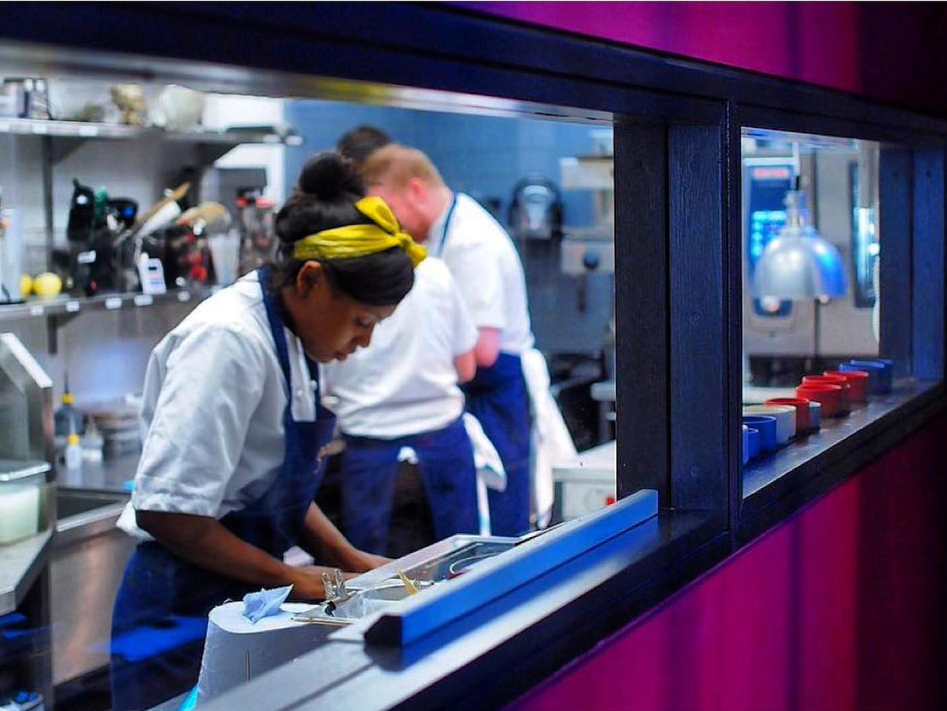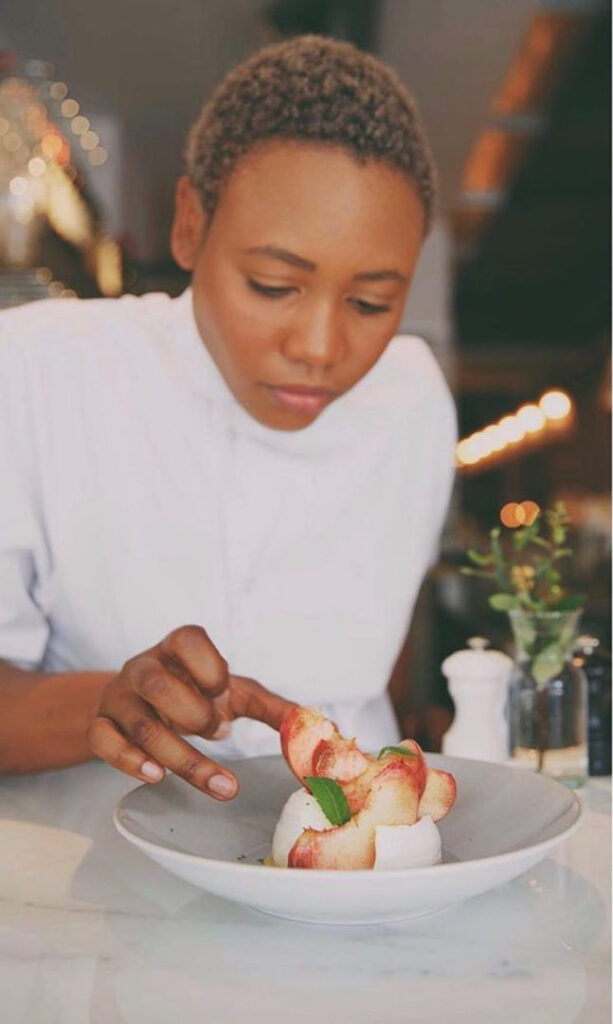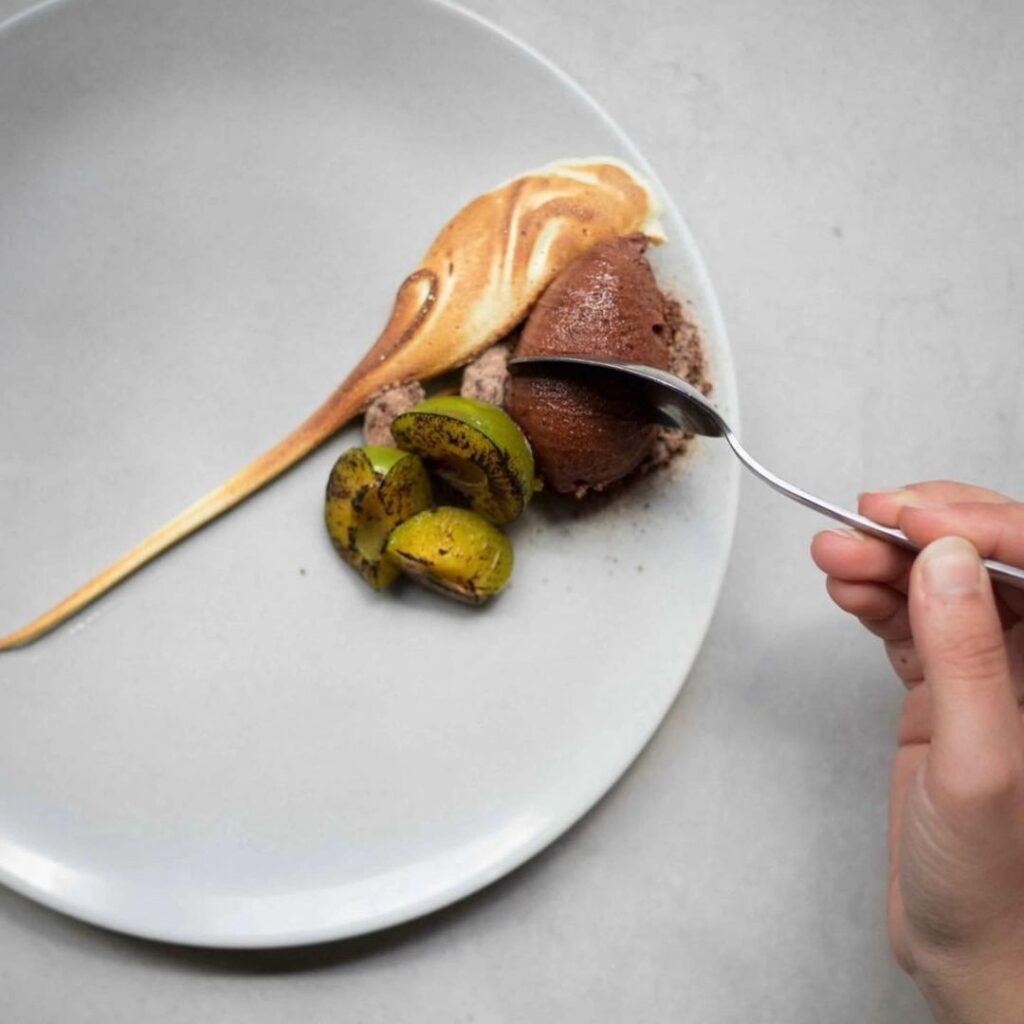Pastry Chefs: Underpaid and undervalued, by Taylor Sessegnon-Shakespeare
Welcome to our new series focusing on salary and career transparency. We’re talking more and more about money at the moment as we enter a perfect storm of increased restaurant running costs and increased cost of living. Set against that, our post-Covid concerns have shifted towards other priorities such as work/life balance, career progression and personal fulfilment.
We know that one of the most powerful and empowering things when assessing your own journey and situation is to have transparent insight of the journey and decisions of others.
Taylor Sessegnon-Shakespeare is a pastry chef and consultant with years of experience. Armed with nothing but a biology degree and a love of baking, she persuaded Michelin-starred Pied à Terre to give her a chance with her first pastry job and from there her career took off, with a CV including Luca, Bancone and Brunswick House. She is a vocal advocate for fairer and more inclusive cultural changes within kitchens.
There has been a lot of debate and contention in our community of late about pastry chef salaries, and a perceived lack of career progression. Here Taylor takes a deep dive into her own journey, contextualising her own experiences with wider industry attitudes. It makes for a brilliant read.
“Given all the knowledge that is needed to be a successful pastry chef we are still under appreciated, undervalued and most importantly underpaid”
The thing that attracted me to pastry at the beginning of my career was the intricacies involved in producing such a simple product. The average person sees whipped cream and thinks nothing of it but as a pastry chef you know how much work goes into simply whipping cream. You know the importance of temperature and that the difference between soft peaks, stiff peaks, grainy, and a complete transformation into butter can be less than a minute.

When you strip away all the demeaning tropes given to both the discipline that is pastry and the chefs themselves; that its effeminate, dainty, precious, difficult, particular and fussy, you eventually see what pastry truly is. Alchemy. And yet, given all the knowledge that is needed to be a successful pastry chef we are still under appreciated, undervalued and most importantly underpaid.
I think we tend to imagine that over the course of our careers our earnings will increase linearly which is often not the case. And there are times when you’ll have to reassess your values at different times of your life eg. are you in the headspace to take on a higher paying role with more responsibility? Or would you prefer a more enjoyable working environment at the cost of a smaller pay check?
Recently I took a pay cut. A large one. It seemed justified at the time; the culture in the kitchen is beautiful and I’ve never felt safer at work. I also began working outside of the pastry section and assumed all the skills I had on pastry would be meaningless and so perhaps I wouldn’t be worth as much. In retrospect that was such a stupid move, but as a pastry chef a recurring theme of your career is being told, you’re an unnecessary expense and that has warped the way I see myself and my worth as chef.
In previous roles my pay was always up for discussion, always questioned, always critiqued. Asking for pay rises has always felt like I’m asking for a favour and not that I’m asking for something I’ve earned and deserve, and usually the responses are demoralising at best and straight insulting at worst.
At Brunswick House alone we’re on our third sous chef in 6 months, which, I believe, is indicative of the current chaotic state of the hospitality industry nationwide. We work in an industry which is physically and emotionally gruelling, the pay can be exploitive and working conditions are often archaic and so understandably, one of the easiest ways to attract employees is fiscally. The only issue is in such desperation you end up throwing money down the drain because a role or title is worth a certain amount of money regardless of who is in that role, regardless of their performance, their passion or their potential.
This way of assessing peoples worth often leaves pastry chefs and bakers stuck in an existential rut of progression and earning limitation as we’re specialists in a world that values breadth of knowledge over depth of knowledge. Not only that but many times when I’ve asked to learn other sections the response tends to be a resounding no, causing further pigeonholing. It doesn’t seem to matter what additional “non-pastry” skills are learnt, you’ll still be seen as just a pastry chef and so your pay is limited.
It all stems down to pastry being seen as an option, an unnecessary after thought and not a focal point of a meal in its own right. Because it is treated as an option it gets given the least attention and the desserts that end up being offered are poorly executed, depressingly uninspired, textureless vessels of individual flavour: a chocolate mousse-esque, a citrus curdy one, a caramel custardy one. The elevation of a pastry menu, one that features a landscape of textures and complex yet harmonious flavours is dependent on investing in a pastry chef. Someone whose sole focus is this highly technical, highly specialised discipline.
Do not get me wrong, hiring a pastry chef is an investment, especially if you’re paying us the money we deserve. But in making this investment you gain a chef with remarkable skills that benefit the kitchen well beyond a single section. You gain a section that is a social media and PR daydream that lures many potential customers in. You gain giving your customers the thorough experience of your hospitality that they deserve and pay for.



